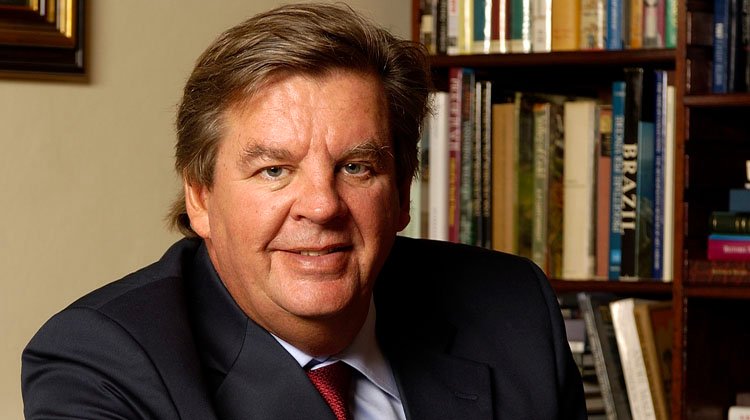Life Story Of Johann Rupert

South African-born entrepreneur Johann Peter Rupert was born on June 1, 1950. He is the eldest child of business mogul Anton Rupert and his wife Huberte.
He serves as chairman of both the South African firm Remgro and the Swiss-based luxury goods company Richemont. He became the CEO of Compagnie Financiere Richemont on April 1, 2010.
He and his family were projected to be worth $5.9 billion as of April 2019, and according to the Forbes Rich List for June 2023, he is the richest man in Africa overtaking the Nigerian billionaire Aliko Dangote who as been the richest man in Africa for over a dacade.
Rupert was raised in Stellenbosch, where he attended the University of Stellenbosch and the Paul Roos Gymnasium, majoring in business law and economics. He left school to pursue a career in business, but in 2004 the university bestowed an honorary doctorate in economics upon him.
His honorary doctorate in commerce from Nelson Mandela Metropolitan University was given to him in 2008.
The Financial Times and Barron’s have both referred to Rupert as “reclusive” since he avoids public appearances and rarely grants interviews. The same tabloid dubbed him “Rupert the Bear” in 2006 for foreseeing a global economic collapse.
He agrees with the notion of a universal basic income
Personal Life
Rupert completed his business apprenticeship in New York City, where he spent three years and two years respectively working for Lazard Freres and Chase Manhattan. In 1979, he left South Africa once more and established Rand Merchant Bank, where he served as CEO.
1984: He founded RMB Holdings by combining RMB and Rand Consolidated Investments. He then departed to work for his father’s business, the Rembrandt Group.
In 1988, Compagnie Financiere Richemont was founded, and the following year, Rothmans International plc appointed it non-executive director. In the same year, he received the Sunday Times’ “Businessman of the Year” award.
1989: Selected to serve as the Rembrandt Group’s vice chairman.
1990: The Cape Town Chamber of Commerce and Die Burger newspaper named him business leader of the year. Vendôme Luxury Group SA, a Richemont company, was founded.
1991 saw his appointment as Chairman of Rembrandt Group Limited, and the World Economic Forum in Davos, Switzerland, recognized him as one of 200 “Global Leaders of Tomorrow” in 1992.
1993: A.H.I. (“Afrikaanse Handelsinstituut”) awarded him the M.S. Louw Award.
Second time in 1996 that he was named the Sunday Times Business Times’ Businessman of the Year.
1997: Selected to serve as Gold Fields South Africa Ltd.’s non-executive chairman.
1999: Received the 1999 Free Market Award from the South African Free Market Foundation.
Rembrandt Group Limited was reorganized in 2000, and Remgro Limited and VenFin Limited were created. appointed as Compagnie Financière Richemont SA’s Chairman and Chief Executive. CEOs of the top 100 Listed Companies in South Africa voted him “Most Influential Business Leader”
2004: The University of Stellenbosch bestowed an honorary doctorate in economics upon me.
For the third time in 2008, the CEOs of the top 100 companies in South Africa chose him as their business leader of the year.
2009 Appointed by the President of the French Republic as a “Officier” of the French “Ordre National de la Légion d’Honneur” by the President of the French Republic.
Chancellor of Stellenbosch University since 2009
2010 Awarded an honorary doctor of laws by the University of St. Andrews in Scotland; made an honorary vice president of the European Golf Tour.
Richest Man In Africa
On Friday, June 16, Forbes Magazine named South African billionaire Johann Rupert “Africa’s richest man,” unseating Nigerian business magnate Aliko Dangote, who had held the distinction for the previous ten years in a row.
Rupert’s net worth was estimated at $12 billion by Forbes’ real-time Global Billionaires Ranking, while Dangote’s was estimated at $10.8 billion. Due to the naira’s depreciation as a result of the Central Bank of Nigeria’s decision to auction the dollar at a price that was much below the official market price, Dangote’s net worth significantly decreased.
The dollar was roughly 30% cheaper on the central bank’s market.
